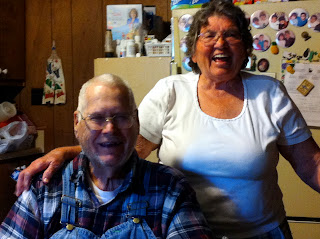Season 1 • Season 2
Season 3: Episode 1 • Episode 2 • Episode 3 • Episode 4
Accidental Sorcerers
Season 3, Episode 5
On the Wide River
Season 3, Episode 5
On the Wide River
Bailar gave a deep sigh and emptied his cup. Sura poured more, and he continued:
I entered the nearest tavern, expecting to be thrown out until I could clean up, but Enzid had heard me as well as Heaven. He hailed me as the savior of Mosvil, even as the rain began anew. Still, he was helpful. What few clothes I had were washed and dried by a fire. I got a hot bath, a hot meal, and a very good bed. He has seen to my needs as I travel by or through Mosvil, ever since.
Enzid believed that Mosvil was under a curse. He may well have some Talent, because when I read the ashes that night I saw both Moon and Fate. In such readings, the Moon indicates a curse, but Fate a happenstance. The two appear together often; it means an unrelated occurrence has become the agent of the curse. To lift such a curse, you must remove both the cause and the agent. Only one is not sufficient. I agreed to help, more because I had no wish to continue walking in that rain than out of any duty I felt.
In such matters, it can often be helpful to visit both temporal and spiritual powers of the area. But Willetoi the priest was unhelpful and the mayor—whose name escapes me—would not even grant me an audience. It was thus natural to suspect that the deeds of both men, separately or together, brought down the curse.
Again, Enzid was a great help. He was outraged at the news, and spread word to his fellow townsmen. Within a day, I was invited to be their honored guest at the mayor’s house. After introductions, the tea and cakes, all the trappings of politesse, at long last we began to discuss the matter at hand.
“You have come to help us?” Strass—that was the mayor’s name—asked me.
“I was not sent to help, I have only been caught up in the matter,” said I. “But since I am here? I will do what I can. My augury suggests a curse has been laid upon the entire town. That would happen only if a great injustice were caused by a mob, or the folk turned away from your local deity, or if the local powers were especially corrupt.” Being young, my diplomacy was as clumsy as my footing, but I saw that I had offended them. “Or one near to the local powers, of course, acting in their name.”
They looked at each other. I don’t think it had occurred to them that they could have thrown an underling on the dung-cart. Many more words were spoken, but very little was said beyond ruling out any general sin of the folk.
“Very well,” Willetoi said at last. “Perhaps you can join us at this time tomorrow. I shall make the necessary preparations, and we will join together in a Call to Prophecy. With the help of Cohodas, we may learn what or who is behind this, and what must be done.”
I agreed, wondering if he had in mind to falsify the prophecy and sacrifice an underling—or me. The thought that he was truly sincere and innocent did not inspire much confidence. But a Call to Prophecy requires one to focus, to put doubts of all kinds out of mind beforehand.
And so I returned at the appointed time, ready to hear. It was… very strange. The power came down, and the three of us spoke as one. They struggled—you could see it on their faces—but Cohodas the local deity had his say:
“You are the men, Strass and Willetoi, who have brought the curse on your people. For you have stolen that which the people give for the benefit of all, to enrich yourselves. You have curried favor with those who might enrich you further, and ignored the pleas of the poor. Your positions are forfeit, and you shall return all you have stolen. Upon pain of the Nine Plagues, you shall begin your work of recompense by sunset tomorrow and finish before the next full moon.”
Willetoi tried to bluff his way out. “You!” he pointed at me. “You controlled us, put those words in our mouths!”
“Do you truly believe that?” I answered. “Only the most powerful sorcerer can compel a man to speak falsehood, and I am but days out of apprenticeship. And raw and young as I am, I do know that only a deity may bring down the Nine Plagues.”
“That is true,” said Strass, looking back and forth like a trapped animal. “But there is responsibility, and there is responsibility, no? I am but a government official. Willetoi is a servant of the deity. And thus, if it is the deity who spoke, is not the greater blame upon that deity’s servant?”
“What—you are as culpable as I!” Willetoi shouted. “Whose name was spoken first? Who was it that arranged—and we are speaking of a wandering sorcerer’s falsehood—”
“It was not he who spoke, and we all know it,” said Strass. “I will not risk the Nine Plagues to preserve either your position or dignity. Nor my own, for that matter. I will begin to make an account of myself at once. But I am sure my burden is the lighter one.”
The two continued to bicker among themselves, attempting to shift or re-proportion the blame, and I departed. The Moon was now satisfied, and Cohodas had told me where to find Fate. I walked through the pouring rain, and barely felt it. In those few minutes, I was more sure of foot then than I have been before or since. Finally, I arrived at a boarding house near the river. I entered, climbed a stair, walked to a certain door, and opened it. Behind it, a man stood watching the rain, open book in hand. He turned to face me.
“Bailar!” he tossed the book aside to greet me. “A blue sash? You passed, then! What brings you here?”
“Storm Cloud. I should have known. As to what brings me, it was you—or rather, what you wrought.”
Bailar looked into his empty cup, then gave his apprentices a wan smile. “Telling this story has been thirsty work. Pour me one more.”
continued…












